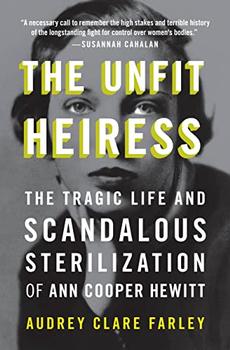Summary | Excerpt | Reading Guide | Reviews | Beyond the book | Read-Alikes | Genres & Themes | Author Bio

A Novel
by Ann LearyFrom the New York Times bestselling author of The Good House, the story of two friends, raised in the same orphanage, whose loyalty is put to the ultimate test when they meet years later at a controversial institution - one as an employee; the other, an inmate.
It's 1927 and eighteen-year-old Mary Engle is hired to work as a secretary at a remote but scenic institution for mentally disabled women called the Nettleton State Village for Feebleminded Women of Childbearing Age. She's immediately in awe of her employer—brilliant, genteel Dr. Agnes Vogel.
Dr. Vogel had been the only woman in her class in medical school. As a young psychiatrist she was an outspoken crusader for women's suffrage. Now, at age forty, Dr. Vogel runs one of the largest and most self-sufficient public asylums for women in the country. Mary deeply admires how dedicated the doctor is to the poor and vulnerable women under her care.
Soon after she's hired, Mary learns that a girl from her childhood orphanage is one of the inmates. Mary remembers Lillian as a beautiful free spirit with a sometimes-tempestuous side. Could she be mentally disabled? When Lillian begs Mary to help her escape, alleging the asylum is not what it seems, Mary is faced with a terrible choice. Should she trust her troubled friend with whom she shares a dark childhood secret? Mary's decision triggers a hair-raising sequence of events with life-altering consequences for all.
Inspired by a true story about the author's grandmother, The Foundling offers a rare look at a shocking chapter of American history. This gripping page-turner will have readers on the edge of their seats right up to the stunning last page…asking themselves, "Did this really happen here?"
The Foundling by Ann Leary explores the exploitation of working-class girls at the time, whose so-called moral impropriety made them easy fodder for eugenicist experiments. At the same time, the story is packed with action, romance and drama — perfect for a little bit of escapism, or a break from watching TV soaps. Like a sweet candy with a bitter center, The Foundling is a feminist horror story wrapped up in a beach read. Leary is excellent at portraying the perversion of a feminist cause, showing how those who claim to support women's advancement can still perpetuate the patriarchal logic that has long kept women down...continued
Full Review
(537 words)
This review is available to non-members for a limited time. For full access,
become a member today.
(Reviewed by Grace Graham-Taylor).
.png) Dr. Agnes Vogel, The Foundling's complicated eugenicist arch-villain, has many real analogues in history. As the eugenics movement bloomed in the late 19th and early 20th centuries, women played an instrumental role in how its ideas took shape. In Britain, Sybil Neville-Rolfe (née Sybil Burney) was the founder of the Eugenics Education Society, a project that sought to harness theories of biological evolution for its own vision of societal advancement. Neville-Rolfe's legacy is a dubious one; she aimed to eradicate poverty and took stances to protect and support women, but her racist, classist and homophobic beliefs led her to advocate for policies that were cruel and discriminatory. Many of her views are directly echoed by Dr. ...
Dr. Agnes Vogel, The Foundling's complicated eugenicist arch-villain, has many real analogues in history. As the eugenics movement bloomed in the late 19th and early 20th centuries, women played an instrumental role in how its ideas took shape. In Britain, Sybil Neville-Rolfe (née Sybil Burney) was the founder of the Eugenics Education Society, a project that sought to harness theories of biological evolution for its own vision of societal advancement. Neville-Rolfe's legacy is a dubious one; she aimed to eradicate poverty and took stances to protect and support women, but her racist, classist and homophobic beliefs led her to advocate for policies that were cruel and discriminatory. Many of her views are directly echoed by Dr. ...
This "beyond the book" feature is available to non-members for a limited time. Join today for full access.

If you liked The Foundling, try these:

by Audrey Farley
Published 2023
For readers of The Immortal Life of Henrietta Lacks and The Phantom of Fifth Avenue, a page-turning drama of fortunes, eugenics and women's reproductive rights framed by the sordid court battle between Ann Cooper Hewitt and her socialite mother.

by Dolen Perkins-Valdez
Published 2023
Inspired by true events that rocked the nation, a profoundly moving novel about a Black nurse in post-segregation Alabama who blows the whistle on a terrible wrong done to her patients, from the New York Times bestselling author of Wench.
Never doubt that a small group of thoughtful, committed people can change the world...
Click Here to find out who said this, as well as discovering other famous literary quotes!